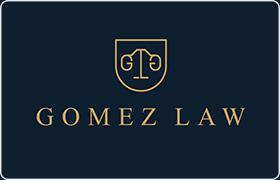 Fontana Timeshare Lawyers, California
Fontana Timeshare Lawyers, California
Sponsored Law Firm
-
 x
x

Click For More Info:
-
Gomez Law, APC
3250 Wilshire Blvd Suite 1901 Los Angeles, CA 90010» view mapReal Estate Dedication. Compassion. Trust.
Whether you are looking to purchase a house or commercial property or in the process of probate, we are here to provide the legal support you need to help you move forward.
800-901-4291
Warning! No lawyers found in this specified area.
Not enough matches for Fontana Timeshare lawyer.
Below are all Fontana Real Estate lawyers.
Lawyers
1-0 of 0 matches



 Mark Gomez Los Angeles, CA
Mark Gomez Los Angeles, CA Practice AreasExpertise
Practice AreasExpertise